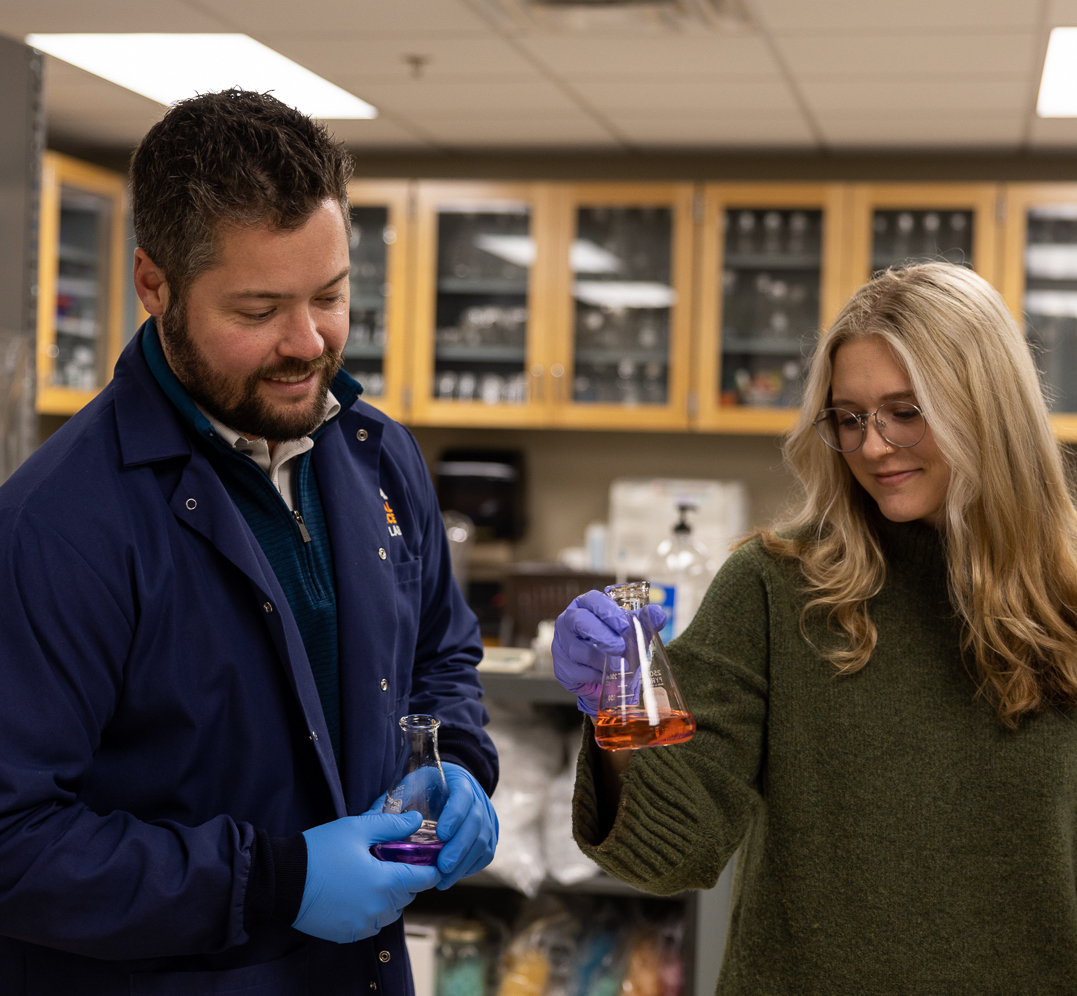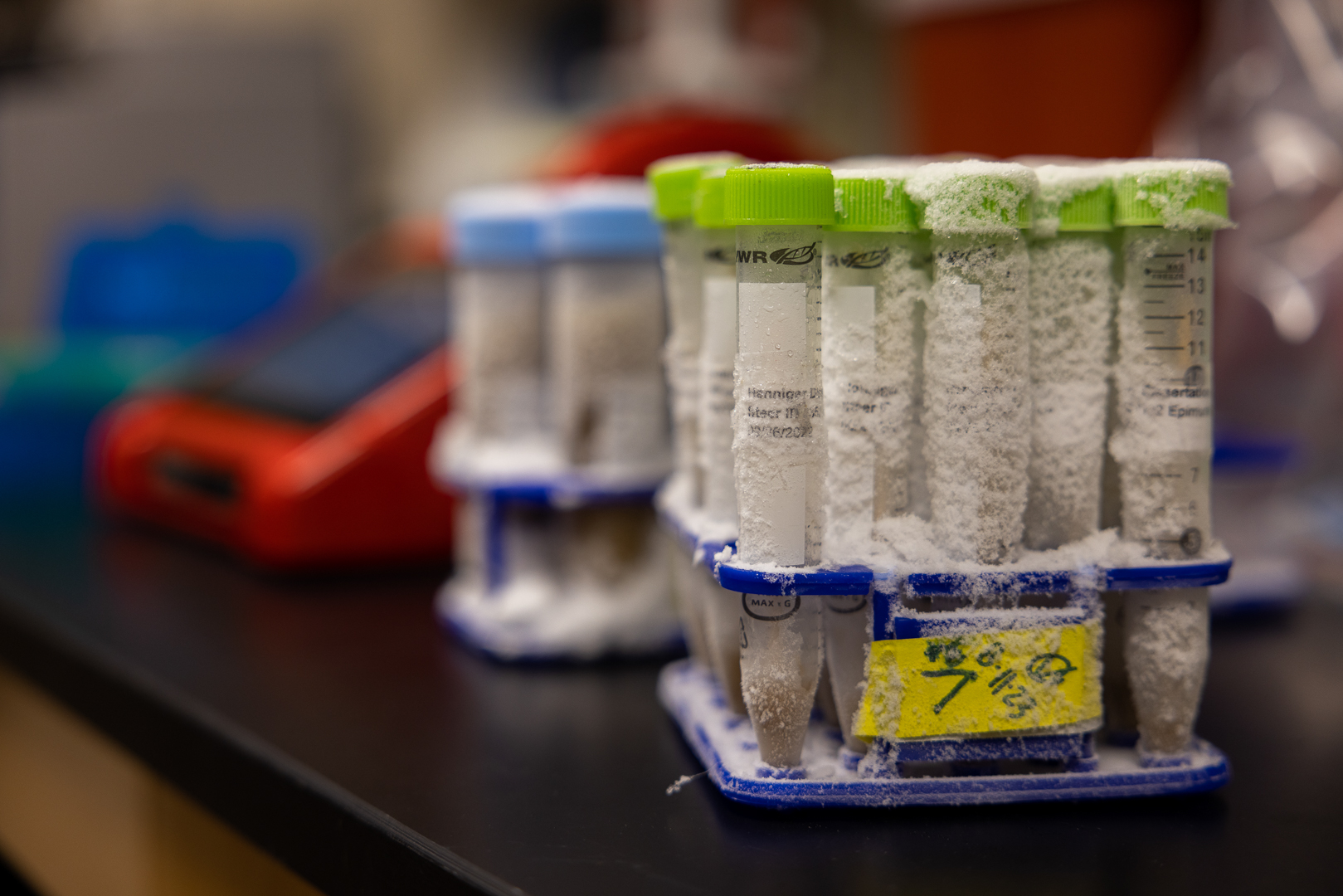Phillip R Myer
Specialization: Rumen Microbiology
The nutritional status of beef cattle and other ruminants reflects a complex interplay of diet, management, host genetics, and the symbiotic microbiota of the gastrointestinal tract. Host genetics can shape microbial diversity, influencing feed efficiency, while feed type and intake affect microbial activity and nutrient supply. Together, these factors determine animal performance and have broad implications for livestock production, resource use, and resilience.
Dr. Myer’s research explores 1) the microbial and molecular drivers of feed efficiency, enteric emissions, and nutrition in grazing beef cattle, and 2) rumen microbiome development and its role in growth. This work links gastrointestinal microbial communities with diet, management, and host genetics.
 Featured in Retaking the Field
Featured in Retaking the Field




Honors
- 2024 W.S. Overton Faculty Award of Merit; Herbert College of Agriculture
- 2024 North American Colleges and Teachers of Agriculture (NACTA) Teaching Award of Merit
- 2023 Outstanding Early Career Animal Scientist Award - Research; ASAS-Southern Section
- 2023 Undergraduate Research Mentoring Award; Herbert College of Agriculture
- 2021 T.J. Whatley Distinguished Young Scientist Award; UTIA AgResearch
- 2020 Gamma Sigma Delta Research Award; UTIA
- 2018 Buford Ellington Faculty Award (<10 yrs service)
- 2018 William T. Miles, M.D., Memorial Award for Community Service; UTIA
Recent News
- Phillip Myer Receives Outstanding Early Career Animal Scientist Award in Research
- Is the Gut Biome a Heritable Trait?
- The importance of measuring feed efficiency in bred heifers - Progressive Cattle
- Prepping mama cows for the last trimester - Working Ranch Magazine
- UTIA study to examine how feed efficiency could further enhance beef production - Beef Magazine
For More Information
Cattle Gut Microbe Series
Teaching & Learning Publications
- Beef Cattle Rumen Microbiology
- Host-Microbiome Interactions
- Beef Cattle Feed Efficiency
- Mitigation of Enteric Methane Emissions in Ruminants
- Beef Cattle Rumen Microbiology and Ruminology
- Best Practices for Dynamic Scientific Presentations
2506 River Drive
Knoxville, TN 37996
- Doctorate, Microbiology, Purdue Univ West Lafayette, 2013
- BS, Biology/Biological Sciences, Bradley University, 2008
Phillip R Myer
2506 River Drive
Knoxville, TN 37996
- Doctorate, Microbiology, Purdue Univ West Lafayette, 2013
- BS, Biology/Biological Sciences, Bradley University, 2008
The nutritional status of beef cattle and other ruminants reflects a complex interplay of diet, management, host genetics, and the symbiotic microbiota of the gastrointestinal tract. Host genetics can shape microbial diversity, influencing feed efficiency, while feed type and intake affect microbial activity and nutrient supply. Together, these factors determine animal performance and have broad implications for livestock production, resource use, and resilience.
Dr. Myer’s research explores 1) the microbial and molecular drivers of feed efficiency, enteric emissions, and nutrition in grazing beef cattle, and 2) rumen microbiome development and its role in growth. This work links gastrointestinal microbial communities with diet, management, and host genetics.
 Featured in Retaking the Field
Featured in Retaking the Field




Honors
- 2024 W.S. Overton Faculty Award of Merit; Herbert College of Agriculture
- 2024 North American Colleges and Teachers of Agriculture (NACTA) Teaching Award of Merit
- 2023 Outstanding Early Career Animal Scientist Award - Research; ASAS-Southern Section
- 2023 Undergraduate Research Mentoring Award; Herbert College of Agriculture
- 2021 T.J. Whatley Distinguished Young Scientist Award; UTIA AgResearch
- 2020 Gamma Sigma Delta Research Award; UTIA
- 2018 Buford Ellington Faculty Award (<10 yrs service)
- 2018 William T. Miles, M.D., Memorial Award for Community Service; UTIA
Recent News
- Phillip Myer Receives Outstanding Early Career Animal Scientist Award in Research
- Is the Gut Biome a Heritable Trait?
- The importance of measuring feed efficiency in bred heifers - Progressive Cattle
- Prepping mama cows for the last trimester - Working Ranch Magazine
- UTIA study to examine how feed efficiency could further enhance beef production - Beef Magazine
For More Information
Cattle Gut Microbe Series
Teaching & Learning Publications
- Beef Cattle Rumen Microbiology
- Host-Microbiome Interactions
- Beef Cattle Feed Efficiency
- Mitigation of Enteric Methane Emissions in Ruminants
- Beef Cattle Rumen Microbiology and Ruminology
- Best Practices for Dynamic Scientific Presentations

